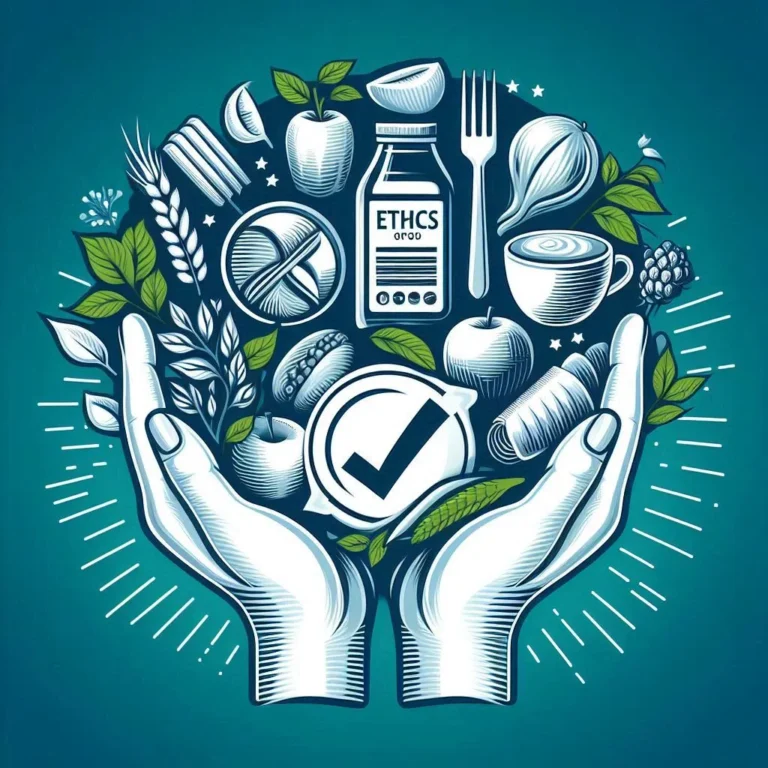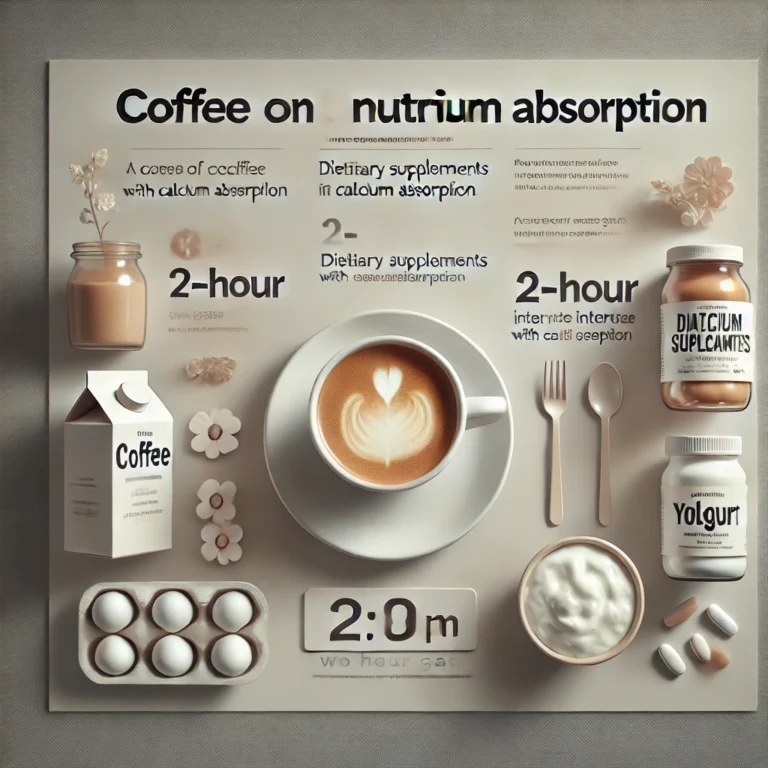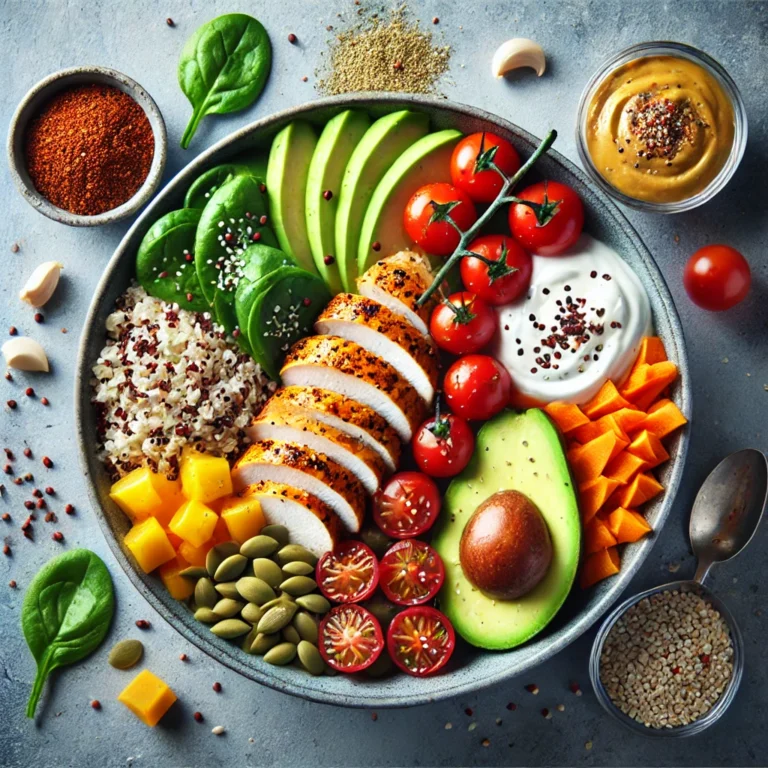*This post may contain affiliate links for which I earn commissions.*
I’ve always been interested in the connection between diet and overall health, but as I age I have become more aware of clogged arteries. As I began to research, I was surprised to learn that some of my favorite foods, such as spinach and avocados, are packed with nutrients that can improve blood flow and lower cholesterol levels. But I also found out that there are many more foods that can have a positive impact on my cardiovascular health. I hope you will want to explore this list of 20 foods that can help you unclog your arteries
The affect of Clogged Arteries on Your Energy Levels.
1. Reduced Blood Flow
Clogged arteries, also known as atherosclerosis, occur when plaque (composed of fat, cholesterol, and other substances) builds up inside the arteries. This buildup narrows the arteries and restricts blood flow. When blood flow is reduced, your muscles and organs receive less oxygen and nutrients, which can lead to fatigue and a general lack of energy.
2. Heart Strain
When arteries are clogged, the heart must work harder to pump blood through the narrowed passages. This increased effort can lead to heart strain and ultimately reduce the efficiency of the cardiovascular system. As a result, you may feel more tired and have less stamina during physical activities.
3. Angina and Chest Pain
Reduced blood flow to the heart muscle can cause chest pain or angina, especially during physical exertion. This pain can make it difficult to engage in physical activities, further decreasing your overall energy levels.
4. Decreased Oxygen Delivery
Clogged arteries can impede the delivery of oxygen to various parts of the body. When tissues and organs don’t receive adequate oxygen, they cannot function optimally, leading to symptoms like weakness and fatigue.
5. Heart Attacks and Other Complications
Severe blockage of the arteries can lead to heart attacks and other serious cardiovascular conditions. Recovery from these events can be lengthy and energy-draining, significantly impacting your physical energy and overall health.
Preventative Measures and Management:
- Healthy Diet: Eat a balanced diet rich in fruits, vegetables, whole grains, lean proteins, and healthy fats. Avoid trans fats, excessive saturated fats, and high cholesterol foods.
- Regular Exercise: Engage in regular physical activity, such as walking, swimming, or cycling, to improve cardiovascular health and maintain healthy arteries.
- Maintain a Healthy Weight: Keep your weight within a healthy range to reduce the risk of developing clogged arteries.
- Avoid Smoking: Smoking is a major risk factor for atherosclerosis. Quitting smoking can significantly improve your heart health and energy levels.
- Manage Stress: Chronic stress can contribute to heart disease. Practice stress management techniques like meditation, yoga, or deep breathing exercises.
- Monitor Blood Pressure and Cholesterol: Regularly check your blood pressure and cholesterol levels and manage them through lifestyle changes and medications if necessary.
- Medications: If prescribed by a doctor, take medications that help lower cholesterol, blood pressure, or prevent blood clots.
- Regular Check-Ups: Regular visits to your healthcare provider can help detect early signs of atherosclerosis and other cardiovascular issues.
By taking steps to prevent and manage clogged arteries, you can maintain better cardiovascular health, which in turn can help preserve your physical energy and overall well-being.
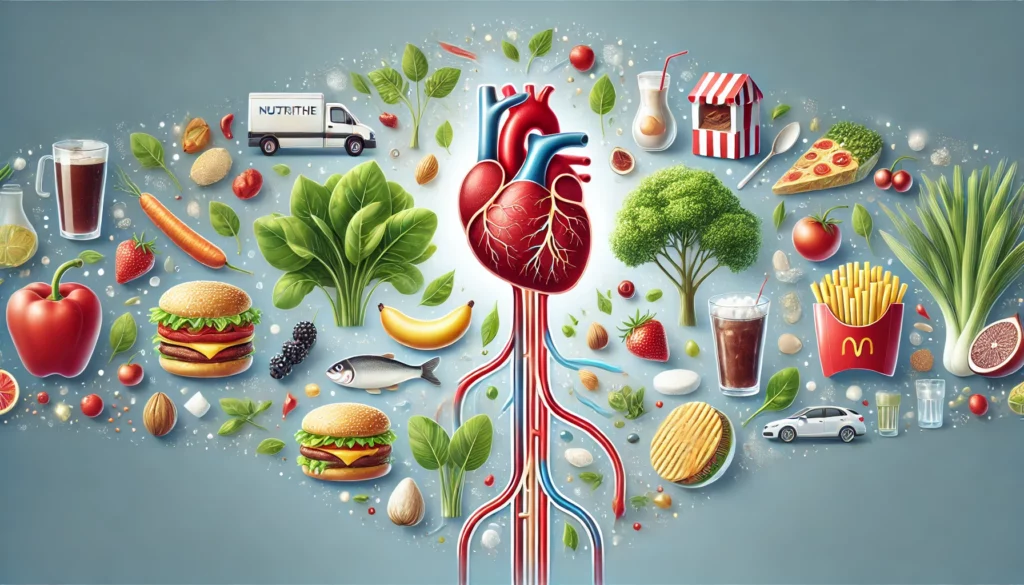
16 Foods To Help You Unclog Your Arteries
1. Leafy Greens Lower Cholesterol
One of the simplest ways to lower my cholesterol levels is to eat leafy greens, as they’re packed with fiber, vitamins, and minerals that help remove excess cholesterol from the bloodstream. Leafy greens like spinach, kale, and collard greens are rich in antioxidants and other nutrients that help protect my heart health.
I make it a point to include them in my diet as often as possible, whether it’s in salads, smoothies, or sautéed as a side dish. I add kale or spinach to an omelette for breakfast. One of the key benefits of leafy greens is their high fiber content. Fiber helps bind to bile acids and remove them from the body, which in turn reduces the amount of cholesterol produced in the liver. This can lead to a significant decrease in overall cholesterol levels.
Additionally, leafy greens are rich in vitamins A, C, and K, as well as minerals like calcium and potassium, which all play a role in maintaining healthy blood vessels and preventing the buildup of plaque in the arteries. Most people will have a significant increase in their artery health by eating kale or spinach daily.
2. Fatty Fish for Heart Health
Fatty fish like salmon, mackerel, and sardines are packed with omega-3 fatty acids, which play a vital role in reducing inflammation in the body. This inflammation can lead to the buildup of plaque in the arteries, so consuming fatty fish regularly can help prevent this process. I’ve also discovered that the omega-3s in fatty fish can help lower triglycerides, a type of fat found in the blood. High levels of triglycerides can increase the risk of heart disease, so reducing them through my diet is a top priority for me as I age.
Cardioprotective Benefits.The Diet and Reinfarction Trial (DART) and the GISSI-Prevenzione Study have shown that the consumption of fatty fish is associated with a 29% reduction in all-cause mortality in individuals who survived a myocardial infarction (Kris-Etherton, 2009).
Omega-3 Fatty Acids Fatty Acids Modest doses of omega-3 polyunsaturated fatty acids (PUFAs) found in fish can significantly reduce the risk of cardiovascular events. These benefits are largely due to the anti-inflammatory properties of omega-3s (Kimmig & Karalis, 2013).
Reduction in Cardiovascular Mortality Intake of omega-3 fatty acids from fatty fish has been associated with lower cardiovascular mortality rates, supporting their health benefits for clogged arteries. This evidence is corroborated by various studies highlighting the positive effects on plasma lipid levels and reduced incidence of coronary artery atherosclerosis (Crowley & Gormley, n.d.).
Greenland Eskimos Study: The cardiovascular benefits of marine-derived omega-3 fatty acids were observed in Greenland Eskimos, who had a reduced incidence of coronary artery disease compared to Danish individuals. This difference was attributed to their higher intake of fatty fish (Harris, Hill, & Kris-Etherton, 2010).
Peripheral Artery Disease: Omega-3 fatty acids EPA and DHA, found in fatty fish, have been linked to improved cardiovascular function, specifically in relation to peripheral artery disease and major coronary events. These fatty acids are also crucial for proper fetal development and may enhance cognitive function in individuals with mild Alzheimer’s disease (Swanson, Block, & Mousa, n.d.).
Dietary Guidelines: The 2010 Dietary Guidelines for Americans advise the consumption of fatty fish like salmon, which is beneficial for clogged arteries due to its low methylmercury content (Nesheim & Nestle, 2014).The 2010 Dietary Guidelines for Americans recommend consuming at least two servings of fatty fish per week.
I’ve also learned to vary the sources of fatty fish to minimize the exposure to mercury and other contaminants.I eat salmon, mackerel, sardines and herring. When you do not live near the sea you can eat the tinned varieties.
3. Berries Rich in Antioxidants
Berries, particularly those rich in antioxidants like blueberries, raspberries, and strawberries, have been shown to play a significant role in maintaining healthy arteries. As someone who’s concerned about their heart health, I’ve made it a point to incorporate these organic berries into my diet. To see why you shouldn’t eat non organic berries, go here. The antioxidants and flavonoids present in these berries help to reduce inflammation and improve blood vessel function, which can help to unclog the arteries.
| Berry | Antioxidant Capacity | Health Benefits |
|---|---|---|
| Blueberries | High | Reduces inflammation, improves memory and cognitive function |
| Raspberries | High | Anti-cancer properties, supports heart health |
| Strawberries | Medium | Rich in vitamin C, supports immune function |
| Cranberries | Medium | May help prevent urinary tract infections |
| Acai berries | High | Rich in fiber, supports heart health and digestion |
I add berries to my oatmeal or yogurt in the morning they give me a boost of energy and helps me feel more focused throughout the day. I also like to snack on them as a healthy alternative to chips or other processed snacks. In addition to their antioxidant properties, berries are also low in calories and high in fiber, making them a nutritious addition to my diet. By incorporating berries into my daily routine, I feel confident that I’m taking steps to maintain healthy arteries and reduce my risk of heart disease.
4. Avocados for Healthy Fats
In addition to antioxidant-rich berries, incorporating healthy fats into my diet has also become a priority, and avocados have become a staple in my kitchen due to their numerous health benefits.
Avocados are an excellent source of monounsaturated fats, which can help lower my LDL (bad) cholesterol levels and increase my HDL (good) cholesterol levels. This, in turn, can reduce my risk of heart disease and unclog my arteries. I slice avocados in salads, and whole-grain sandwiches. I also use avocado oil for sautéing vegetables and making homemade salad dressings. I also love an egg mayo alternative.
Egg mayo Alternative
Take a large ripe avocado and mash it. Add salt and then mash in three hard boiled eggs. I sometimes flavor with fresh lime juice and chili, but it is a matter of choice. Avocados have a natural creamy texture which makes it a great alternative for mayo.
The healthy fats in avocados give you a feeling of satiety for longer which mean I don’t crave snacks. Additionally, avocados are rich in potassium, a mineral that can help lower blood pressure and reduce the risk of cardiovascular disease. Avocados are packed with a variety of vitamins and minerals, including vitamin C, vitamin E, and folate.
These nutrients can help protect your cells from damage, reduce inflammation, and improve your overall cardiovascular health. By incorporating avocados into my diet, I feel confident great, and fortunately for me I live in the tropics where they are plentiful and cheap.
5. Nuts and Seeds for Fiber
Adding nuts and seeds into my diet is an effective way to boost fiber intake, which can help remove excess cholesterol from my bloodstream and prevent it from accumulating in my arteries. Almonds, for instance, are a rich source of dietary fiber, with a single ounce providing about 3.5 grams. I try to snack on a handful of almonds daily, which not only helps me meet my fiber needs but also provides a satisfying crunch to my salads.
Other nuts and seeds that are high in fiber include pumpkin seeds, chia seeds, and flaxseeds. I like to sprinkle chia seeds on my oatmeal or yogurt, while flaxseeds are a great addition to my smoothies. Pumpkin seeds, on the other hand, make a tasty snack when roasted with a drizzle of olive oil and a pinch of salt. I also grind pumpkin seeds and add them to soups. I’ve also sprinkle nuts and seeds to my salads, which not only adds fiber but also a nice texture and flavor.
In addition to their high fiber content, nuts and seeds are also rich in healthy fats, protein, and antioxidants, making them a nutritious addition to your diet.
6. Olive Oil for Inflammation
A daily dose of olive oil has become a staple in my diet, since I lived in Spain. Olive oil is rich in antioxidants that help combat inflammation, a major contributor to clogged arteries. Not only does it add flavor to my meals, but it also provides numerous health benefits.
One of the key benefits of olive oil is its ability to reduce inflammation in the body. Chronic inflammation can lead to a range of health problems, including clogged arteries, heart disease, and stroke. By consuming olive oil regularly, I’m able to keep inflammation under control and reduce my risk of developing these conditions.
Here are some key benefits of olive oil:
| Benefit | Description |
|---|---|
| Reduces Inflammation | Olive oil contains antioxidants that help combat inflammation in the body. |
| Improves Heart Health | The antioxidants in olive oil can help lower cholesterol levels and reduce the risk of heart disease. |
| May Reduce Cancer Risk | Some studies have shown that consuming olive oil regularly may reduce the risk of certain types of cancer. |
| Supports Brain Health | Olive oil contains compounds that may help reduce the risk of age-related cognitive decline. |
| Aids in Weight Management | Olive oil can help with weight loss and maintenance by reducing inflammation and improving metabolism. |
7. Whole Grain Bread Benefits
Regularly incorporating whole grain bread into your diet could be a game changer for your cardiovascular health, as it’s rich in fiber, vitamins, and minerals that help keep arteries clear. Its one of the easiest and healthiest changes you can make, the switch from refined white bread to whole grain bread. The fiber content in whole grain bread helps to lower cholesterol levels and prevent the buildup of plaque in my arteries.
Whole grain bread contains antioxidants and polyphenols that help to reduce inflammation in the body, which is a major contributor to cardiovascular disease. The fiber in whole grain bread helps to regulate bowel movements and prevent constipation, which can put extra strain on my cardiovascular system.
The potassium content in whole grain bread helps to lower blood pressure by counteracting the effects of sodium in my body. Whole grain bread is more filling than refined white bread, which helps me to eat less and maintain a healthy weight, reducing my risk of cardiovascular disease.
8. Legumes for Blood Flow
I am mostly a vegetarian so legumes like lentils, chickpeas, and black beans are an essential protein source. These tiny powerhouses are packed with fiber, protein, and potassium, which work together to help lower blood pressure and cholesterol levels. They are also high in iron which helps to transport oxygen around the bod. Improved blood flow and oxygenation naturally make you feel more energized.
One of the key ways legumes improve blood flow is by reducing inflammation in the body. Chronic inflammation can lead to the narrowing of arteries, making it harder for blood to flow freely. Legumes contain anti-inflammatory compounds that help to combat this process, keeping my arteries flexible and healthy.Additionally, the fiber in legumes helps to remove excess cholesterol from my bloodstream, further reducing the risk of clogged arteries.
9. Tea for Antioxidant Boost
I’ve never a fan of tea, but I never know just how beneficial it is for my cardiovascular health. I have the smell of tannin but will drink green or white tea, even if i do draw the line at black tea. Tea is packed with antioxidants called flavonoids, which help to reduce inflammation and improve blood flow.
10. Dark Chocolate for Heart Health
Dark chocolate can have a similarly positive impact on heart health. 100% dark chocolate has no added sugar, it is just pure cacao. Dark chocolate, which is rich in flavan-3-ols, has been linked to beneficial effects on endothelial cell function, blood pressure control, platelet function, insulin resistance, and serum lipid profile, potentially reducing the risk of myocardial infarction (Donaldson et al., 2016).
To be called dark chocolate it has to least 70% cocoa content, as it contains more flavonoids than milk chocolate or white chocolate. For health one small square a day is beneficial.
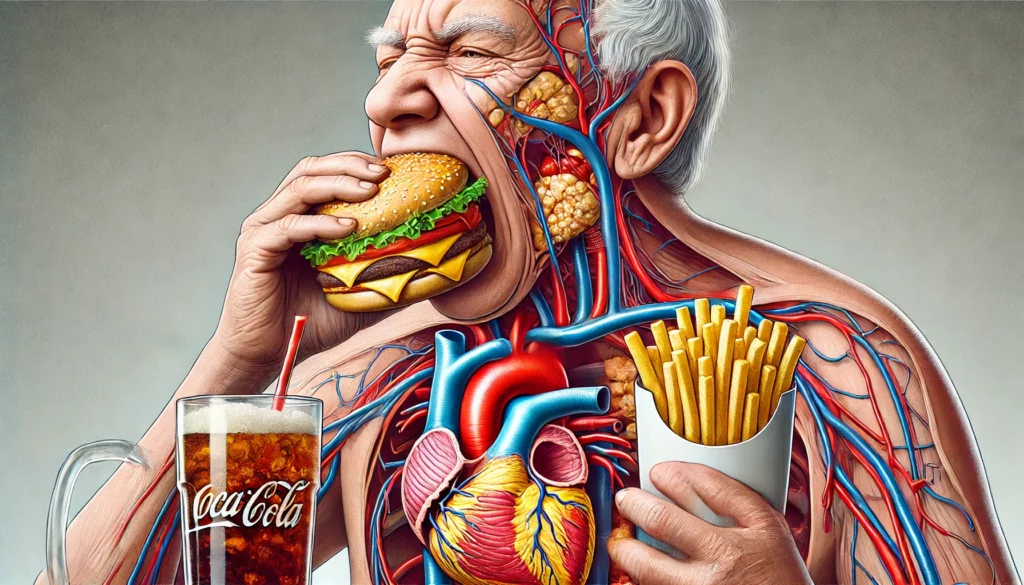
11.Citrus Fruits for Vitamin C
vitamin C is essential for maintaining healthy blood vessels and overall cardiovascular health. Citrus fruits like oranges, grapefruits, and lemons aren’t only delicious but also rich in vitamin C, flavonoids, and fiber. These nutrients work together to help lower blood pressure, improve blood lipid profiles, and prevent the formation of blood clots.
Vitamin C in citrus fruits helps to produce collagen, a protein that gives structure to blood vessels and keeps them flexible The flavonoids present in citrus fruits help to prevent the formation of blood clots, which can lead to heart attacks and strokes. The fiber and vitamin C in citrus fruits help to lower LDL (bad) cholesterol levels and increase HDL (good) cholesterol levels.
12. Fermented Foods for Gut Health
Fermented foods, such as kimchi, sauerkraut, and kefir, contain probiotics that promote a healthy gut microbiome. This is vital because research has shown that an imbalance of gut bacteria, also known as dysbiosis, can contribute to the development of atherosclerosis, a condition characterized by the buildup of plaque in the arteries.
By consuming fermented foods, you support the growth of beneficial bacteria in my gut, which helps to reduce inflammation and improve blood lipid profiles. This, in turn, can help to slow down the progression of atherosclerosis and even reverse some of the damage that’s already been done.Additionally, fermented foods are rich in antioxidants and fiber, which can help to lower blood pressure and cholesterol levels, further reducing the risk of heart disease.
13. Cruciferous Vegetables for Detox
My daily diet now includes a variety of cruciferous vegetables, such as broccoli, cauliflower, and kale, which are rich in sulforaphane and other compounds that have been shown to help detoxify the body and prevent the formation of plaque in the arteries. I’ve made it a point to incorporate these veggies into my meals at least three times a day.
The sulforaphane in these vegetables has been shown to have potent antioxidant and anti-inflammatory properties, which can help to reduce the risk of heart disease and other cardiovascular conditions. Additionally, the fiber content in these veggies can help to lower cholesterol levels and improve digestion.
A favorite snack can eat hot or cold is lightly steamed broccoli with a squeeze of lemon juice and raw garlic. Another is roasted cauliflower. I put the cauli florets in the oven with coconut oil and I sprinkle garlic and fresh chilies over the, then roast for twenty minutes. If you don’t like the flavor of coconut oil add olive oil. I add a handful of kale to my smoothies, along with some organic berries The sweetness of the fruit masks the bitterness of the kale, making it a tasty and healthy way to start my day.
14. Herbs and Spices for Inflammation
One of the most effective ways to combat inflammation and promote heart health is by incorporating specific herbs and spices into my daily meals.
Turmeric, for example, contains a powerful compound called curcumin, which has been shown to reduce inflammation and improve blood vessel function. I like to add turmeric to my soups, stews, and curries for an extra boost of flavor and nutrition.
Another herb that I’ve found to be beneficial is ginger. Ginger has anti-inflammatory compounds called gingerols and shogaols, which have been shown to reduce inflammation and improve blood lipid profiles. I add ginger to my stir fries. Every day I drink homemade lemon and ginger tea, its just boiling water over finely chopped ginger and a whole freshly squeezed lemon.
Cinnamon is another spice that is beneficial for heart health. Add it to your morning oatmeal or as the rest of the world says porridge oats. You can also add it to your brewed coffee. It’s also a great additive to hot chocolate.
15. Apples for Soluble Fiber
Apples are a rich source of soluble fiber, which can help bind to bile acids and lower LDL cholesterol levels, reducing the risk of heart disease.
Soluble fiber works by forming a gel-like substance in the digestive system, which traps bile acids and prevents them from being reabsorbed into the bloodstream. This process not only lowers LDL cholesterol but also increases the production of HDL (good) cholesterol.
It’s with good reason that doctors say eat an apple a day and keep the doctor away. Apples contain a powerful antioxidant called quercetin, which can help reduce inflammation in the body and improve overall health. The fiber in apples can help slow down the absorption of sugar into the bloodstream, supporting healthy blood sugar levels.
16.Pomegranates for Antioxidants
Po megranates are a rich source of antioxidants, particularly ellagic acid, which has been shown to help reduce inflammation and improve cardiovascular health.The antioxidants present in pomegranates help to protect my arteries from damage caused by free radicals, which can lead to the buildup of plaque and increase my risk of heart disease. The antioxidants present in pomegranates have also been shown to have anti-cancer properties, making them a great addition to a healthy diet.
Turmeric for Anti-Inflammation
I’ve also discovered the potent anti-inflammatory properties of turmeric, which have made it a valuable addition to my arsenal of artery-unclogging foods. Turmeric tea can be made with hot milk and turmeric.
Ginger for Blood Flow
Fresh ginger, a root commonly used in cooking and herbal remedies, improves blood flow and helping to unclog your arteries. Ginger has been shown to have cardioprotective effects, including antihypertensive, anti-hyperlipidemia, and anti-platelet properties. These benefits contribute to improved heart health and reduced risk of cardiovascular diseases (Fakhri et al., 2020).
Flaxseeds for Omega-3 Fatty
Incorporating flaxseeds into your diet is beneficial to prevent heart disease. I’ve found that adding a tablespoon or two of ground flaxseeds to my oatmeal or yogurt provides a rich source of alpha-linolenic acid (ALA), a type of omega-3 fatty acid. This is especially good for you if you dont like fatty fish.
I like to sprinkle them on my salads, blend them into my smoothies, or even use them as an egg substitute in baked goods.
Conclusion to 16 Foods to Help You unclog Your Arteries.
These 16 foods, including leafy greens, whole grains, berries, and fatty fish, are rich in essential nutrients and antioxidants that promote cardiovascular health. By making these foods a regular part of your meals, you can enjoy a variety of delicious and nutritious options that support a healthy heart. Adopting a diet rich in these heart-friendly foods, combined with regular exercise and a healthy lifestyle, can pave the way to better heart health and overall well-being.


